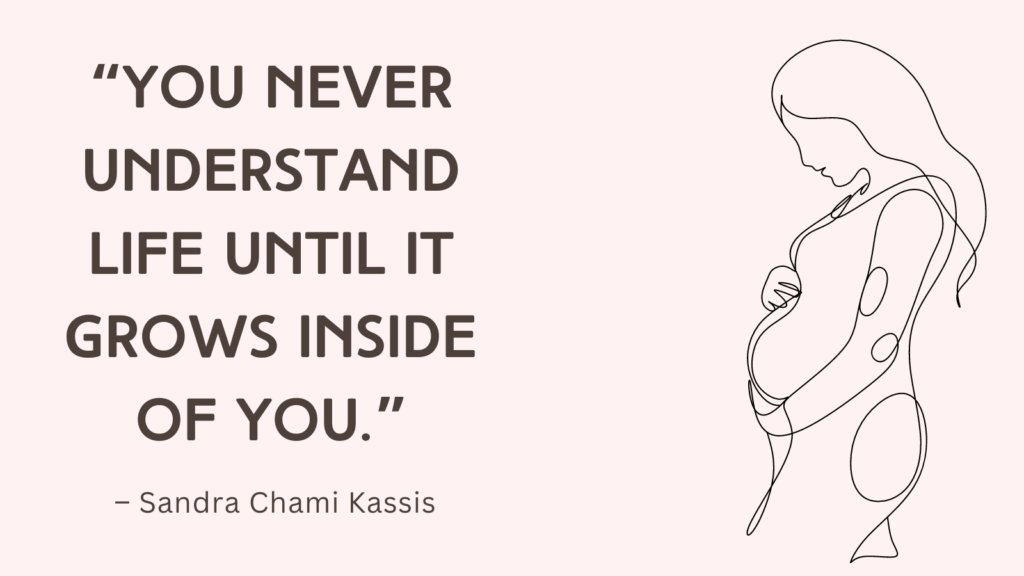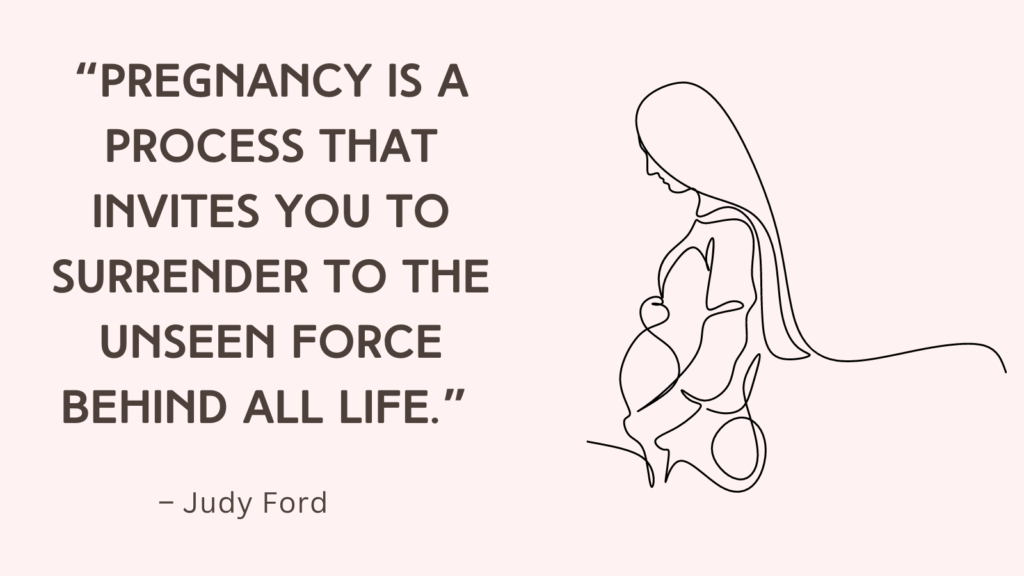Bloating and constipation are common symptoms in the first trimester due to hormonal changes that slow digestion.
While these symptoms can be uncomfortable, there are several safe and effective strategies to help you feel better and support a healthy pregnancy.
Why Bloating and Constipation Happen in Early Pregnancy
During the first trimester, the hormone progesterone rises to support a healthy pregnancy.
While essential for fetal development, progesterone also relaxes the muscles in your digestive tract, which can slow digestion and lead to constipation and bloating.
Additionally, the growing uterus puts pressure on the intestines, which can further disrupt regular bowel movements.
Related: Best Pregnancy Resources (Information, Apps, Books, Podcasts)
Tips for Relieving Bloating in the First Trimester
1. Eat Smaller, Frequent Meals
Large meals can be harder for your digestive system to process, increasing bloating and discomfort. Smaller, more frequent meals are gentler on your stomach.
– Aim to eat every 2-3 hours.
– Avoid large meals, especially in the evening, to reduce nighttime bloating.
– Include nutrient-dense foods in each meal to support energy levels and nutrient intake.
Related: Best +25 Pregnancy Journal Prompts
2. Drink Plenty of Water
Staying hydrated can prevent bloating and helps keep digestion moving smoothly. Water also flushes out excess sodium, which can contribute to bloating.
– Aim for 8-10 cups of water daily.
– Try adding lemon or cucumber for flavor, as these can also help with digestion.
– Spread your water intake throughout the day to avoid overloading your stomach.
3. Limit Gas-Producing Foods
Certain foods, like beans, cabbage, and carbonated drinks, can produce gas in the digestive tract and increase bloating.
– Monitor which foods make you feel bloated and try to reduce or avoid them.
– Opt for alternatives like zucchini, carrots, and spinach if these foods don’t trigger bloating.
– Choose still water over carbonated beverages, which can increase gas.
Related: Top 12 Tips On How To Deal With Morning Sickness At Work
4. Exercise Regularly with Gentle Movements
Light exercise can help move gas through the digestive tract, relieving bloating and improving overall digestion.
– Try walking, gentle stretching, or prenatal yoga for 15-20 minutes a day.
– Avoid exercises that cause discomfort or put strain on your abdomen.
– Exercise earlier in the day if possible, as this can also improve sleep quality.
5. Eat Slowly and Chew Thoroughly
Eating quickly or swallowing large bites can cause you to swallow air, leading to bloating. Thorough chewing also helps with digestion.
– Take smaller bites and chew thoroughly to reduce swallowed air.
– Sit down for meals, avoid distractions, and focus on eating mindfully.
– Consider putting your fork down between bites to slow your pace.
Related: Morning Sickness What To Eat When Nothing Sounds Good?
Tips for Relieving Constipation in the First Trimester
1. Increase Fiber Intake Gradually
Fiber adds bulk to stool, helping it move more easily through the intestines. It also helps soften stool, making it easier to pass.
– Include fiber-rich foods like fruits, vegetables, whole grains, and legumes in your meals.
– Increase fiber intake slowly to avoid gas or bloating.
– Aim for a daily total of about 25-30 grams of fiber.
2. Incorporate Probiotics
Probiotics are healthy bacteria that support digestive health and can help relieve constipation by balancing gut flora.
– Include yogurt, kefir, sauerkraut, or other fermented foods in your diet.
– Opt for a probiotic supplement if recommended by your healthcare provider.
Related: Best 70 Pregnancy Hacks (+Products Recommendation)
3. Stay Active to Stimulate Digestion
Physical activity increases circulation and can help stimulate digestion, which may relieve constipation.
– Gentle activities like walking or swimming can be effective and safe during pregnancy.
– Aim for light movement most days, even if it’s just 10-15 minutes.
– Avoid high-intensity or high-impact exercises that may be uncomfortable.
4. Add Prunes or Prune Juice to Your Diet
Prunes are a natural laxative and high in fiber, which can help relieve constipation gently.
– Start with a small amount, like 3-4 prunes or 1/2 cup of prune juice, to test your tolerance.
– Add prunes to oatmeal, yogurt, or smoothies if you prefer.
– Drink water alongside prunes or prune juice to stay hydrated.
Related: Best 7 Pregnancy Self Care Products
5. Try Warm Liquids
Warm liquids can stimulate digestion and help relieve constipation by relaxing the digestive muscles.
– Start your morning with a warm glass of water with lemon or a caffeine-free herbal tea.
– Enjoy a warm cup of broth or soup for hydration and digestion support.
– Avoid caffeine-heavy drinks as they can be dehydrating.
What to Avoid When Managing Constipation and Bloating
– Avoid Laxatives Without Consulting a Doctor: Some laxatives can cause uterine contractions or aren’t safe during pregnancy, so always consult your doctor before using any over-the-counter remedies.
– Limit Caffeine Intake: While small amounts are generally safe, too much caffeine can dehydrate and worsen constipation.
– Reduce Sugary and Processed Foods: These can contribute to bloating and are often low in fiber, which may exacerbate constipation.
Conclusion
Bloating and constipation in the first trimester can be uncomfortable, but making small dietary and lifestyle adjustments can often provide relief.
Be patient with yourself and prioritize hydration, fiber-rich foods, and regular movement.
Remember, these symptoms are a natural part of pregnancy, and with a few gentle adjustments, you can manage them effectively and support your well-being.




